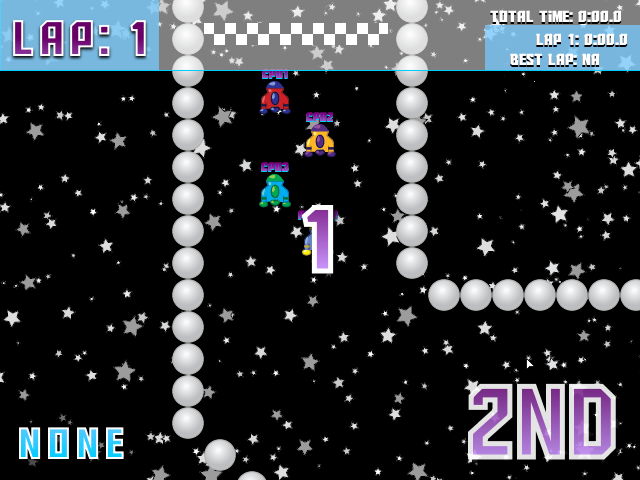Looking at the title, there's a chance you might think this post is an answer to the question. It is instead a breakdown of the question, or at least... an overview of the question.
Why do we make games? Today in my economics class, my teacher told me about Seth Priebatsch, a Princeton dropout who is using games to, from what I've seen and heard, promote companies/advertise (with "check-ins and challenges" at locations. They also have the Patriots logo on the bottom of their site. As a Bears fan this is a major deterrent.)
My initial feeling when I heard about this service was "This is what's wrong with games today! People just use it make money! Blargh!" But when I thought about it, haven't games pretty much always been used for profit? In terms of mainstream games, that is. Pac-Man was not designed to change lives and inspire, it was designed to fatten the pockets of the designers. And why not? Aren't games a good way to cash in? People want to play the games and are willing to cough up the dough needed to play them. (Note: I'm not saying money is the sole motivation for these organizations, but it would be a mistake to not include it as one of them)
So at this moment in time, I can't blame this Seth guy. Hell, I'm sure this won't be the last I hear of him. And it's wrong to assume he's just doing it for the money; he's spoken on using games for educational purposes, something I support.
Let's look at the indie gaming scene. We make games for little to no profit (for the most part), and a lot of the games are free to play, with developers making money from either advertising or donations. Clearly, while it's easy to say that games are made for money, the indie scene really disproves that theory. Sure, there's money on the XBLA, and the indie developers that make it big probably put food on the table. But the point is, there are people who make games for reasons other than dead presidents.
Why do I make games? Right now, I'm making games so I have something to look forward to in my day, something to make me feel good. Finishing a game, for me at least, is the best feeling in the world. It's not easy to finish a game! Even if a game is completely unsuccessful, and not even close to being profitable, I get reinforcement just by finishing. At the same time, it would be wrong to say that I don't care about profit, or that I don't want to make money for my games. That would just serve as further reinforcement, and would even help me get this site noticed more, and would help our games become better (potentially).
But big, mainstream teams change everything; personal goals turn into team goals that are based off of company goals. Maybe games are being held back because of this; or maybe it keeps things balanced, organized, and on task; efficient.
But that's not what your English teacher cares about. We need things that move us, things that inspire us, things that teach us lessons, things we can relate to, things we can feel, something real. Ever seen a really good movie, or read a really good book? After watching some of my favorite movies, I can't drive or do anything. It's like I've been overcome by the power of the movie... there's clearly no way to quantify this power, but I can go back in my mind and tell which movies left me feeling this way. Your mileage may vary, but I've never felt the same way as I feel after watching a fantastic movie when I play a videogame.
The industry is still relatively young, although that might be heard to grasp because of it is rapidly growing (in terms of a market/industry) and changing. Indies make games because we want to critique society, or because we are heartbroken and we want to feed off that, or maybe we make them to relieve stress. Mainstream companies want their games to be fun, they want to entertain, and of course sell. Motivation is part of the major divide that exists between mainstream devs and indie devs, and sets the tone for the different styles of the games in both sides of the divide.
Friday, September 24, 2010
Sunday, September 19, 2010
Flash!
Well, well, well folks. Abscure has taken a small step for many developers world wide but a massive step for Abscure...kind.
I've recently got into the beta of a new Flash game creator called Stencyl, made for it's ease of use and fast results.
And the result is? Another game of course!
Check out GAMMACART for racing action! It's got sixteen different tracks, and better yet, it's in space!

Labels:
GAMMACART
Subscribe to:
Posts (Atom)
